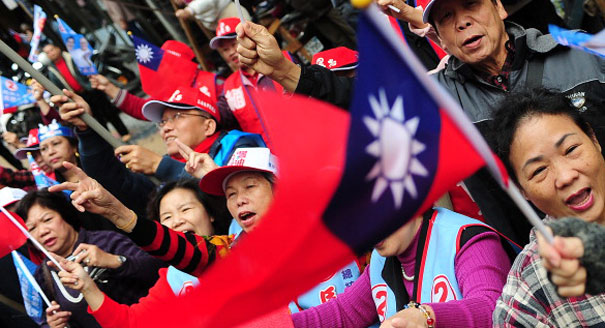Registration
You will receive an email confirming your registration.
Following the 2012 elections in Taiwan and the United States and a leadership change in China, relations across the Taiwan Strait have generally remained stable. Economic and cultural exchanges continue to increase between Taiwan and the mainland, and China has agreed to a small increase in Taiwan’s international presence through guest attendance at the International Civil Aviation Organization assembly.
While the United States and China are in the midst of engaging and hedging in a rapidly changing region, Taiwan remains a potentially contentious, though delicately managed, issue. Domestically, Taiwan’s democracy continues its turbulent path under unique circumstances.
The Carnegie Endowment for International Peace, in conjunction with Republic of China Mainland Affairs Council and National Chengchi University, hosted a two-day conference featuring panels of leading Taiwanese, American, and Chinese thinkers taking stock of U.S.-Taiwan-China relations and the challenges in the months ahead.
The Washington-Taipei-Beijing Triangle
This panel discussed the strategic interactions between China, Taiwan, and the United States, and the implications for cross-strait dynamics.
This panel discussed the strategic interactions between China, Taiwan, and the United States, and the implications for cross-strait dynamics. Speakers included Arthur Shuh-Fan Ding of the National Chengchi University, Kwei-bo Huang of the National Chengchi University, Robert Sutter of George Washington University, Li Peng of the University of Maryland, and Cynthia Watson of the National Defense University. It was moderated by Richard Bush of the Brookings Institution.
Kwei-Bo HUANG
National Chengchi University
Arthur Shuh-Fan Ding
Robert Sutter
Li Peng
Richard Bush
Cynthia Watson
National War College
Luncheon Keynote With Kin Moy
Kin Moy, U.S. Deputy Assistant Secretary of State for East Asia, spoke on the positive trends in U.S.-Taiwan ties and areas for further cooperation in the context of cross-strait relations.
Kin Moy, U.S. Deputy Assistant Secretary of State for East Asia, spoke on the positive trends in U.S.-Taiwan ties and areas for further cooperation in the context of cross-strait relations. Carnegie’s Douglas Paal moderated.
Douglas H. Paal
Distinguished Fellow, Asia Program
Kin Moy
Opportunities and Challenges in Cross-Strait Relations
Panelists reflected on promising trends as well as longstanding obstacles in economic, political, and societal interactions between China and Taiwan.
Panelists reflected on promising trends as well as longstanding obstacles in economic, political, and societal interactions between China and Taiwan. Discussants included Chien-Min Chao of the Chinese Culture University, Samuel Shiouh-Guang Wu of National Taipei University, Alan Romberg of the Stimson Center, and Shulong Chu of Tsinghua University. Michael McDevitt of CNA and Bernard Cole of the National Defense University moderated.
Samuel Shiouh-Guang Wu
Chien-Min Chao
Alan D. Romberg
Shulong Chu
RADM (Ret.) Michael McDevitt
Bernard Cole
National War College
The Asia-Pacific Region and Cross-Strait Relations
This panel examined how cross-strait relations fit into broader strategic trends, as well as the important regional implications from such developments.
This panel examined how cross-strait relations fit into broader strategic trends, as well as the important regional implications from such developments. Panelists included Yann-Huei Song of the Academia Sinica, Chyungly Lee of National Chengchi University, Michael Auslin of American Enterprise Institute, Carnegie’ Michael Swaine, and Canrong Jin of Renmin University. Carnegie’ Douglas H. Paal moderated.
Chyungly Lee
Yann-huei Song
Michael Auslin
Canrong JIN
Renmin University
Douglas H. Paal
Distinguished Fellow, Asia Program
Michael D. Swaine
Former Senior Fellow, Asia Program
Domestic Developments in Mainland China
Cross-strait relations have evolved in part as a function of domestic political and social trends.
Cross-strait relations have evolved in part as a function of domestic political and social trends. Panelists examined how the Taiwan issue fits into policy goals and priorities. Discussants included Chih-Chieh Chou of National Chung Kung University, Chung-min Tsai of the National Chengchi University, David Shambaugh of George Washington University, Fan Li of the World and China Institute, and Kenneth Lieberthal of the Brookings Institution. David M. Lampton of Johns Hopkins University SAIS moderated.
Chung-Min TSAI
National Chengchi University
Chih-Chieh Chou
David Shambaugh
Fan Li
David M. Lampton
Kenneth Lieberthal
